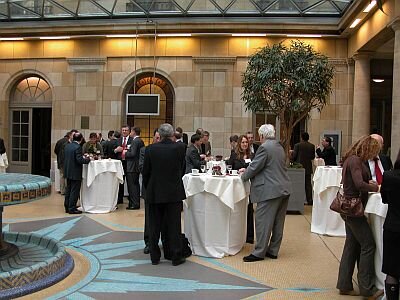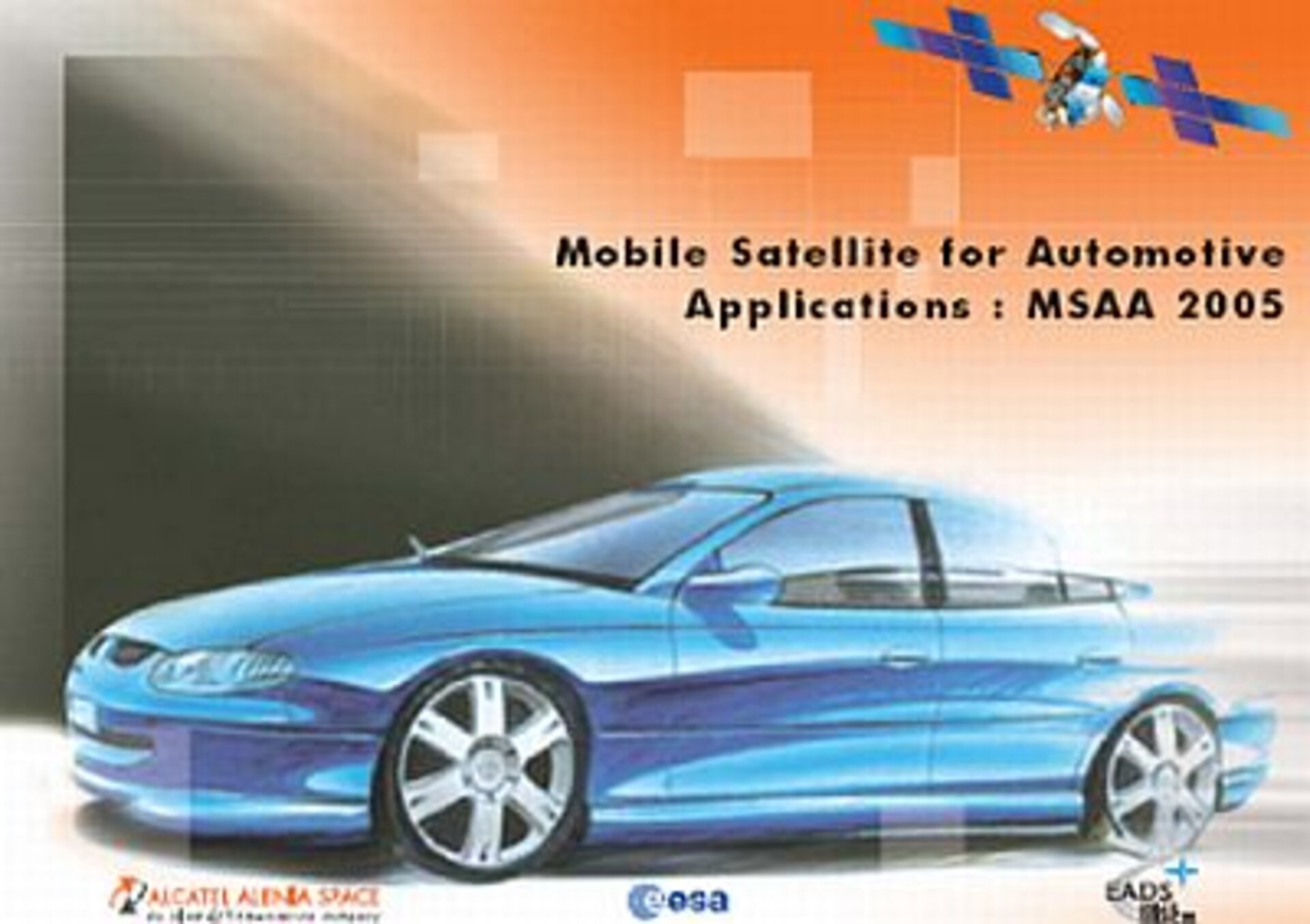On the road to safe and intelligent cars using satellite technology
The first ever workshop to understand what space based communications, navigation and multimedia can mean for the European automotive industry was held recently in Brussels, Belgium. The event was organised jointly by ESA, Alcatel Space and EADS Space Services.
There were sixty participants at the event, which brought together experts from the satellite telecommunications and automotive industries as well as the European Commission. The workshop served as a venue to network and gain knowledge on market trends in the automotive sector, and also to exchange views.
A market survey was carried out before the workshop to collect information and experiences and determine areas of future interest for consumers. The survey results, combined with the workshop, helped gauge the interest members of the car industry have in space based applications.
Gaining insight into the potential contribution of satellite based solutions for the automotive industry and end-users will be the key to continued growth of the European satellite telecommunications industry. Multimedia applications, navigation systems and mobile communications can all play an important role in achieving this.

Mr Juhanni Jaaskelainen of the European Commission outlined the main areas of EC concern: reducing congestion, decreasing fuel consumption and increasing safety on European roads. The "i2010 Intelligent Car Initiative" envisages new services like emergency calls, adaptive cruise control and better traffic management.
One major issue to be dealt with is the raising of awareness within the user community to stimulate demand originated by the users, as opposed to the manufacturers, helping to implement new services faster.
The European Road Federation (ERF) representative expressed the organisation's desire that all members of the value chain contribute to establishing a viable satellite service to vehicles. This includes not only vehicle manufacturers but also service and technology providers.
The ERF has recently launched a project supporting 'GNSS Introduction in the ROAD Sector' (GIROADS) by the implementation of pilot applications and field tests. So far, 31 organisations from eight countries, including China, are participating in this project.
Another speaker emphasised the need for satellite links to vehicles if embedded software updating technologies were to proceed. This new innovation can update a vehicle's software without requiring a workshop visit.
Digital Radio was also a topic of discussion, with reports on experiences in the US market with digital radio via satellite being reported.
ESA supported projects

SES-Astra demonstrated the results of their ESA supported project 'Mobile Ku Band Receiver Demonstrator' to develop a rich multimedia content transmission system for broadcast of audio, video, web based interactive or vehicle specific services directly from the satellite to moving cars.
Two other companies with ESA Telecom supported projects were also in attendance. JAST Antenna Systems of Switzerland have recently completed field trials with a prototype of their flat multi-band antenna system for vehicles. The definition of an industrial version is in progress. Similarly, ERA of the UK has developed a low-cost and ultra-low profile antenna for direct TV satellite broadcast to vehicles.
Participant feedback
Comments from the workshop participants included "What do drivers really need?" and "What are they willing to pay?" For their part, automotive industry representatives suggested that stake holders and governments should financially support services. It was suggested that insurance companies, because they would be major beneficiaries, could contribute to E-Call and other such security related services.
"A user-awareness initiative is one thing," opined one participant, "but accurate pricing remains a challenge. Affordable technologies in the automotive industry need to be packaged in the same way as with mobile phones."
Free services such as E-Call were on the technology wish list for several participants, including Mr Roger Paguy from the French Ministry of Transport. He also expressed a desire for other technologies which would reduce travel time through improved navigation, as well as tolling systems to avoid queues and more leisure oriented services such as improved radio channel availability.
Mr Pierluigi Mancini, Strategy Manager for ESA, stated that the workshop had been an excellent opportunity to get together with players in the automotive and satellite telecommunication fields and had been very important for future discussion.
Mr Mancini went on to say that, complementary to the traditional technology push action, ESA is promoting a user driven strategy that has the ambition to consolidate user requirements in order to develop sustainable satellite telecommunication based services.
The workshop organisers, ESA and their industrial partners Alcatel Space and EADS Space Services were delighted with the large user participation.




